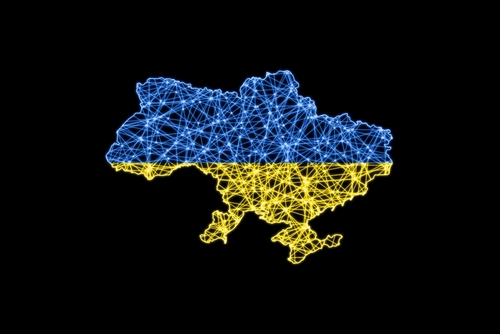
Due to the ongoing conflict, all Ukrainian TV has changed the schedules and now, in addition to important information, it spreads messages for the morale of citizens
For decades now, television has been one of the most effective means of disseminating information and is often used as a vehicle for messages of social utility. The power of this media is given by the diffusion of the devices themselves from which it is possible to watch television programs of any kind, in addition to the ease of reaching a large number of users in every part of the world.
The media, as is well known, are considered fundamental in the dynamics of international conflicts and, in the case of the ongoing war between Russia and Ukraine, they have often been targeted by the Russian armed forces attacks, intending to prevent them from having news that did not correspond to their propaganda. Every house still standing in Ukraine has one or more televisions from which to get all the information necessary for survival and it is therefore essential for the government to choose what to program to make the media effective and useful.
In recent days, however, in addition to the usual programming based mainly on information related to the conflict, Ukrainian televisions are spreading positive messages, general advice on mental health and examples on how to carry out one’s duty as a citizen and be an integral part of the national information structure. This audiovisual practice, for the Ukrainian government, will serve to keep the morale of the population as high as possible to prevent the anguish linked to such a difficult moment from taking over.
The Guardian reports on messages passed on by televisions all over the country, both in subways and in private buildings, about a possible common victory, encouraging the population to move forward despite everything and hoping that the situation will improve in a short time. Every day, in the programs on air, psychologists and psychotherapists are also invited to give professional advice on how to manage anxiety, justifiable at a time like this. The only planned interruptions, during this programming, consist of support videos for the army engaged at the front.
Many of the experts interviewed say that this type of media approach will be of great use to Ukrainians throughout the winter, which appears to be the hardest in the nation’s recent history. In addition to the purely mental state of the population, however extremely relevant in the dynamics of a future rebirth, it will also be very important to safeguard the ability to survive in the cold which will probably be a problem impossible to underestimate in the coming weeks. The messages broadcast will also dispense fundamental advice on how to save energy, which is increasingly lacking, as well as in the rest of Europe, due to the interruptions in gas supplies by Russia.
Some messages aired across the country advise Ukrainians to also use outdated methods of warming themselves, starting with the use of hot water bottles to keep close to the body, to the less conventional method of using the heat emanating from pets such as cats and dogs in addition to the more feasible one of reuniting with neighbors during the most rigid periods to take advantage of the greater heat deriving from human proximity.
On social media, another information channel widely used throughout Ukraine, many suggest which appliances to use to consume as little electricity as possible, while others broadcast videos on how to make emergency cookers with candles for soldiers in the trenches. Every media, at present, is used to inform, in the best possible way, the population affected by the terrible conflict and every Ukrainian sees himself as part of the information network necessary to alleviate the anguish of war.
Alessandro Fiorentino



 Subscribe
Subscribe